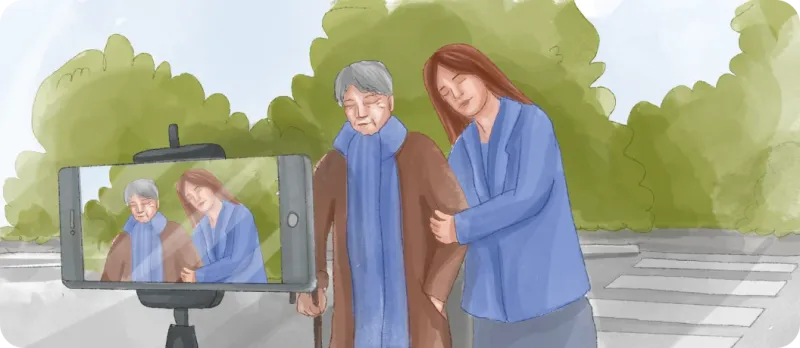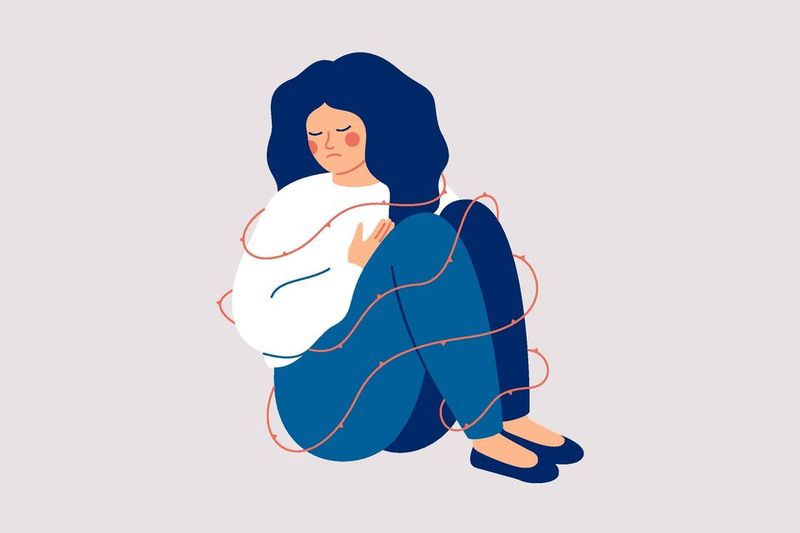17 Signs Of A Communal Narcissist Who Tricks Everyone Except The People Closest To Them
Communal narcissists often walk among us, expertly hiding their true nature behind a facade of selflessness and generosity. They are typically adored by the public, admired for their seemingly endless compassion and kindness.
However, those who are closest to them know a different story—one filled with manipulative behavior and a hunger for validation. This duality is what makes communal narcissists so challenging to identify and deal with.
In this listicle, we explore 17 distinctive signs that reveal the truth about communal narcissists. From their public persona to private interactions, each sign provides a glimpse into their complex and often troubling behavior.
1. Adored in Public, Cold at Home

In public, communal narcissists are often the life of the party. They exhibit a warm and inviting demeanor that draws people to them. Strangers see them as kind-hearted and generous, often praising their ability to bring joy into any situation. However, behind closed doors, a different side emerges.
Those closest to them experience a coldness that contradicts their public warmth. Private interactions may be filled with criticism and aloofness. This stark contrast can leave loved ones feeling confused and isolated.
The dual nature of a communal narcissist makes it difficult for outsiders to believe the accounts of those closest to them, perpetuating the cycle of manipulation and control they exert.
2. Generosity Comes With Unspoken Expectations

Generosity is often a hallmark of communal narcissists. They lavish gifts and favors upon others, giving an impression of selflessness and goodwill. These acts of kindness, however, are not without strings attached.
Unspoken expectations accompany every generous gesture. Recipients may find themselves feeling indebted or pressured to reciprocate in ways they are uncomfortable with. This underlying expectation can create tension and discomfort in relationships.
The communal narcissist’s generosity is a tool for control, ensuring that others remain loyal and compliant. It is a means to an end, rather than a genuine act of kindness, revealing their true underlying motives.
3. Kindness As Control

To outsiders, the kindness of a communal narcissist may seem boundless. They are quick to lend a helping hand, always ready to assist those in need. This altruism, however, is often a guise for control.
Their acts of kindness come with an unspoken agreement, a subtle way to maintain influence over others. By positioning themselves as indispensable, they create a dependency that serves their need for power.
Loved ones may find themselves trapped in a cycle of gratitude and obligation, feeling unable to break free from the communal narcissist’s grip. This manipulation is a key characteristic of their behavior.
4. Highly Visible Good Deeds

The good deeds of a communal narcissist are never done in the shadows. They ensure that every act of charity is highly visible, often orchestrating events that showcase their benevolence to a wide audience.
They thrive on the applause and admiration these public acts generate, using them as validation for their constructed persona. This need for recognition drives their actions, overshadowing any genuine desire to help others.
Those closest to them may recognize the performative nature of these deeds, understanding that the communal narcissist’s motivations are self-serving, rather than truly altruistic.
5. Guilt-Tripping Loved Ones

Loved ones of communal narcissists often find themselves on the receiving end of guilt trips. The narcissist may express disappointment in the lack of appreciation for their so-called selfless acts, subtly manipulating emotions to maintain control.
These guilt trips can leave loved ones feeling inadequate, pressured to constantly validate the narcissist’s efforts. It is a tactic used to ensure loyalty and compliance, reinforcing the narcissist’s hold over their relationships.
Recognizing this pattern is crucial for those close to a communal narcissist, as it can be a draining and damaging experience over time.
6. Appear Humble, Crave Admiration

Communal narcissists often perfect the art of appearing humble while secretly craving admiration. They may downplay their achievements or feign modesty, which ironically draws more attention to their supposed humility.
This tactic encourages others to praise them, fulfilling their need for validation without appearing overtly self-centered. Loved ones may notice the discrepancy between the narcissist’s public humility and private need for admiration.
This behavior can create tension in personal relationships, as the narcissist’s constant craving for praise often overshadows genuine interactions with others.
7. Lavish Gifts Mentioned Constantly

Lavish gifts are a favored tool in the communal narcissist’s arsenal. They often present extravagant presents to friends and family, seemingly out of generosity. However, these gifts are frequently mentioned, ensuring everyone is aware of their supposed largesse.
This constant reminder serves to bolster their image as giving and selfless, while subtly reinforcing the recipient’s sense of obligation. Loved ones may come to resent this behavior, recognizing the gifts as more of a power play than a genuine act of kindness.
Understanding this pattern can help mitigate the control the narcissist seeks to maintain through their generosity.
8. Rehearsed Empathy

The empathy of a communal narcissist often feels rehearsed and mechanical, lacking the genuine warmth expected in empathetic interactions. They may mimic the behaviors of empathetic individuals, offering sympathy and understanding in a way that seems almost performative.
This rehearsed empathy is a tool for maintaining their constructed image, allowing them to appear compassionate and caring to outsiders. Loved ones, however, may sense the insincerity, feeling disconnected from the narcissist’s supposed empathy.
This behavior can create emotional distance in relationships, as the narcissist’s inability to offer genuine empathy becomes increasingly apparent over time.
9. Drained Not Supported

Interactions with a communal narcissist often leave loved ones feeling drained rather than supported. While they may present themselves as a pillar of strength and understanding, their presence can be emotionally taxing.
Their need for attention and validation often overshadows any genuine attempt to support and uplift those around them. Loved ones may find themselves giving more than they receive, leading to feelings of exhaustion and burnout.
Recognizing this pattern is essential for those in close relationships with a communal narcissist, as it can help them set boundaries and protect their emotional well-being.
10. Hero to Strangers

In the eyes of strangers, communal narcissists often appear as heroes, celebrated for their acts of kindness and bravery. They go out of their way to help others, ensuring that their deeds are highly visible and praised.
Loved ones, however, may view these actions with skepticism, knowing that the narcissist’s motivations are often self-serving rather than altruistic. This duality can create tension in relationships, as the narcissist’s public persona contradicts their private behavior.
Understanding this facade is crucial for loved ones, as it helps them navigate the complexities of their relationship with a communal narcissist.
11. Resentment When Not Owed

Resentment often simmers beneath the surface of a communal narcissist when others do not reciprocate their so-called kindness. They expect their generosity to be met with loyalty and gratitude, feeling slighted when this is not the case.
Loved ones may find themselves on the receiving end of passive-aggressive behavior or coldness, as the narcissist’s resentment for perceived ingratitude manifests. This expectation of reciprocity is a tool for maintaining control over relationships.
Recognizing this pattern can help those close to a communal narcissist manage their interactions and protect themselves from emotional manipulation.
12. Criticism Leads to Anger

Criticism is a trigger for communal narcissists, often leading to anger rather than reflection. They view any negative feedback as a threat to their carefully crafted persona and respond with defensiveness and hostility.
Loved ones may hesitate to voice concerns, fearing the potential backlash and conflict that can arise from critiquing the narcissist. This creates an environment where honest communication is stifled, further entrenching the narcissist’s control.
Understanding this reaction can help loved ones navigate difficult conversations, emphasizing the importance of setting boundaries and maintaining open channels of communication.
13. Sacrifices as Martyrdom

Communal narcissists often frame their sacrifices as acts of martyrdom, seeking admiration for their supposed selflessness. They recount their hardships in exaggerated terms, ensuring that everyone is aware of their supposed suffering.
This behavior serves to garner sympathy and validation, reinforcing their image as a self-sacrificing individual. Loved ones may grow weary of the constant dramatization, recognizing the narcissist’s need for attention and praise.
Acknowledging this tendency can help those close to a communal narcissist manage their expectations and maintain realistic perspectives on the narcissist’s actions.
14. Expect Loyalty, Give None

Loyalty is a one-way street for communal narcissists. They expect unwavering loyalty from those around them, often without offering the same in return. This expectation is rooted in their need for control and validation.
Loved ones may find themselves feeling undervalued and unsupported, as the narcissist’s self-centeredness takes precedence over genuine connection. This imbalance can lead to resentment and tension in relationships.
Recognizing this pattern is essential for those close to a communal narcissist, as it helps them set realistic expectations and protect their emotional well-being.
15. Charm Disappears in Private

The charm of a communal narcissist is often reserved for public appearances, where they shine as charismatic and engaging individuals. In private, however, this charm can disappear, revealing a starkly different demeanor.
Loved ones may encounter a cold and unapproachable individual behind closed doors, leaving them feeling isolated and unappreciated. This duality is a hallmark of the communal narcissist’s behavior, perpetuating their control.
Understanding this contrast helps loved ones navigate their relationship with a communal narcissist, recognizing the importance of setting boundaries and seeking support when needed.
16. Thrive on Applause, Not Connection

Communal narcissists thrive on applause and admiration, often prioritizing these over genuine connection with others. They seek out situations that allow them to be celebrated, neglecting the deeper emotional bonds that form true relationships.
Loved ones may feel overlooked and undervalued, as the narcissist’s need for external validation takes precedence. This focus on applause can create a superficial dynamic in relationships, leaving loved ones feeling disconnected.
Recognizing this pattern is crucial for those close to a communal narcissist, as it helps them navigate the complexities of their relationship and prioritize their own emotional needs.
17. One-Sided Closest Relationships

Closest relationships with a communal narcissist often feel one-sided, with the narcissist’s needs taking precedence over those of their loved ones. This dynamic is rooted in their self-centered nature and craving for validation.
Loved ones may find themselves constantly giving, with little reciprocation from the narcissist. This imbalance can lead to feelings of resentment and emotional exhaustion, as the relationship fails to meet their needs.
Understanding this pattern is essential for those in close relationships with a communal narcissist, helping them set boundaries and seek support from external sources when needed.

